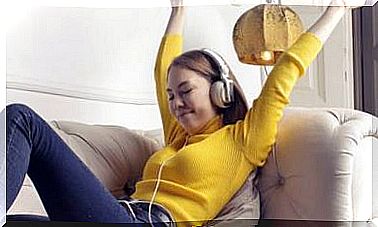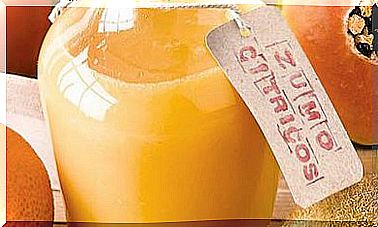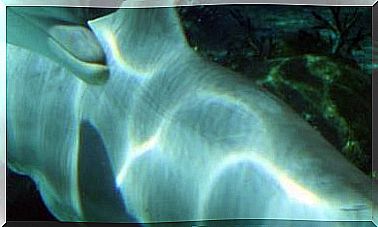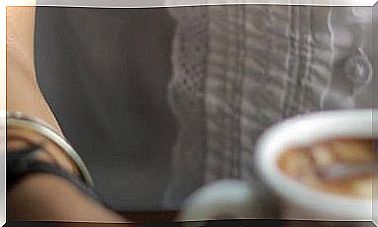How To Take Care Of Your Ears With Natural Medicine
Hearing is a very sensitive sense and the one that most accuses the use of new technologies. Learn how to prevent and treat otitis, ringing and other very common ear problems.
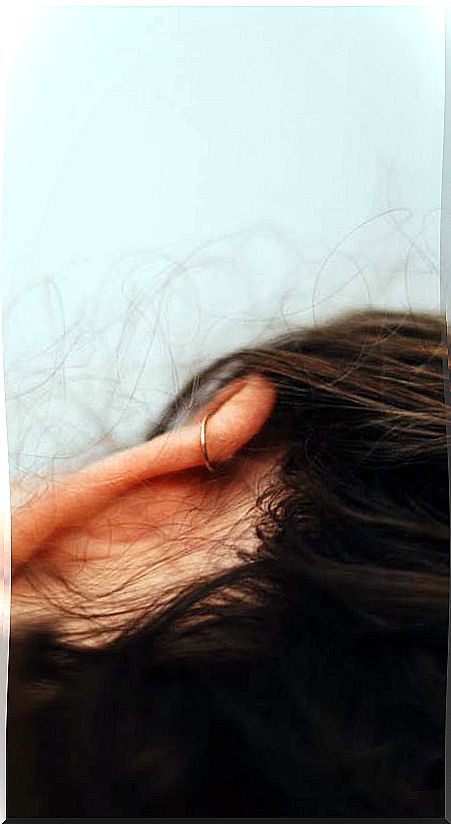
We can try to cover our ears and at the same time follow a conversation or contemplate a landscape, or we can watch TV without sound for a while … These small gestures will give us a quick understanding of the usefulness of our hearing. Its importance is reflected with all its nudity when contemplating a newborn who does not hear, or children affected by medical treatments who have lost their hearing.
Today we have adapted for them from forms of communication to cochlear implants. All this helps us to solve problems, to better understand them and to give ear care the importance it deserves on a physical and emotional level, and in relation to our health and that of the family, since it is enough for someone to experience low hearing to that others have to raise their voices.
Caring for our ears
It is very important that we take care of the ear, and above all insist on prevention aspects. From medicines that affect the ear of the fetus or child, exhaustive cleanings that remove wax, badly cured colds, stress, bathing in swimming pools, abuse of headphones, air travel, environmental noise. ..
We are surrounded by elements that disturb the ears, organs protected by the bone mass of the skull, extremely delicate, fragile and complex. We realize its importance when pain, infections, buzzing, hearing impairment, loss of balance, etc. appear.
But promoting their care tends to take a backseat: cochlea transplants or hearing aids are promoted rather than alerting people to factors that cause deafness, such as the use of an ototoxic antibiotic or bad noise habits.
In this article we will review a range of details to take care of the ear in the face of the most frequent problems, hoping that they will help us promote the health of this organ.
What is ear wax for?
The fluid secretion of the outer ear produces wax, a very special substance with its associated bacteria that acts as a protective barrier. Excessive scratching or environments laden with dust, pollution, dirt, flour, coal, etc. They help the wax to change and solidify.
90% of the Spanish adult population uses cotton swabs to clean the outer ear, despite the fact that this practice is not recommended by almost anyone. And it is that it has the opposite effect to the desired one: when pushing the wax towards the eardrum, its extraction is difficult and the wax compacts when mixed with cotton filaments.
The best hygiene consists of handling the ears as little as possible in order not to interfere in their natural cleaning process; At most, you can apply a little virgin olive oil and then use water to clean without completely removing the wax, which protects against dust, germs, etc.
Expel mucus to avoid ear infections
To avoid otitis media, it is important to clean your nose and throat. Many of them depend on the accumulation of mucus in the area of the Eustachian tube and are more frequent in children, because when it is small, narrow and horizontal (it slopes over time), the mucus passes directly to the ears.
In addition, it closes when there is inflammation, which prevents fluid drainage. In fact, it is the disease most often diagnosed in children under five years of age. If we do not help to expel the mucus, in its search for an exit the mucus can lead to a perforation of the eardrum.
It is also easy for recurrent otitis media to occur , since the symptom is treated with antibiotics, but the area is rarely just clean. Blowing forward only removes the mucus from the nostril, not the mucus that accumulates in the rhinopharynx.
To remove mucus from the rhinopharynx, blow back and gargle, in addition to nasal washes. And also swallow, because this activates the muscles that open and decongest the Eustachian tube.
At the end of the article you will see other effective measures to prevent and cure otitis.
How to treat otitis
Two thirds of otitis media heal on their own ; of the remainder, only a small percentage will require antibiotics.
In addition to blowing backwards, as we explained above, mucus can be expelled by draining with seawater, or with postural changes that relieve pressure on the Eustachian tube.
It can also help you to use effective medicinal plants, changes in diet, reflex therapy or care for emotions.
1. Beneficial plants
Internally, the infusions of marshmallow, mullein or chamomile are indicated.
Externally, applications of mullein, plantain or calendula extracts in olive oil, after ruling out perforation of the eardrum and perforated otitis media. In general, when the eardrum is perforated it stops hurting and nothing is used externally.
For pain, two drops of oregano or peppermint essential oil can be diluted in 10 ml of olive oil.
2. Watch your diet
Good hydration is important (drinking water, juices, broths, infusions …) and eating a diet that is abundant in fruits and vegetables and limits the consumption of dairy products and refined flours.
3. Reflex therapy
An acute crisis can be soothed with reflexology treatment focused on reflex points that are sensitive at the time. It also helps to use acupuncture moxas on the tender points around the pinna.
4. The emotional factor
The hospices were the places with the most throat and otitis problems. Today they are nurseries. Children block themselves from hearing what they do not want to hear and as a defense mechanism for what they live as a kind of abandonment of their mother.
Children who cry when they are left in the nursery and take refuge in a certain way in the otitis to be at home are prescribed many things, but often they only need the hug and the mother’s breast: the act of swallowing is ideal to decongest the tube of Eustaquio.
The impact of noise
The noise is one of the most intense attacks that can receive the ear. Between sound and noise there is a subjective border: when it goes from being pleasant to unpleasant. If we are not able to adapt, the noise produces great fatigue and decreases the vitality in general ; it also reduces the quality of sleep.
A characteristic of noise is that it is less annoying if you make it yourself than others. Another is that young people have more capacity to bear it (especially motorcycles!). If you work in an environment saturated with noise, it is important to act in the area of prevention by improving the environment in the workplace, and in turn on a personal level.
It will be necessary to monitor the decibel level, but also the frequency and rhythm, and especially the time of exposure to it. As noise does not affect everyone equally, before working in a noisy enclave it is important that the doctor examine the cochlear resistance capacity and perform a fatigue test, in addition to performing periodic examinations to see how the body adapts.
The massage and balance acupuncture meridians, is often helpful in tinnitus.
Avoid vertigo
The nerve centers that control balance obtain information about the position of our body thanks to the macules and acoustic ridges of the inner ear, whose nerve impulses inform the brain. If you feel imbalance while still, you speak of vertigo : an illusion of movement or turning of the environment or of oneself that is usually related to an alteration of the vestibular system.
Two other systems intervene in balance: the visual and the proprioceptive. In these cases it will be necessary to hydrate well and yawn to unblock the ears and avoid barometric otitis.
A ringing in the ear
With headphones at all hours – even studying – and places that are pure noise, the hearing of young people is at risk. At the moment, 20% of Spanish adolescents have permanent ringing in their ears from listening to loud music. Of these, only one in twenty takes preventive measures.
Tinnitus often impairs sleep, concentration, and the ability to relax, and can be the prelude to future hearing loss.
The tinnitus will always be notified of something, so it is very important to seek their cause all the way to the ear, but also outside it. They can be caused by a wax plug, loud noise, or a middle ear infection; other times they are of vascular origin due to involvement of the cochlea or endolymphatic hypertension.
Chinese medicine tends to associate them with energetic dysfunctions in the kidney or liver. Whenever they appear, toxins from foods and medicines that affect the ear will be suppressed, opting for a vegetarian diet free of alcohol and heated fats.
Plants with vasodilator action can be useful , such as hawthorn or ginkgo extract taken by mouth. Applying massage and neck care, as well as balancing the acupuncture meridians is usually helpful.
The ailment is explained to the patient and attempts are made to minimize its importance. A few hours a day you can wear a kind of hearing aid that emits a monotonous sound (like a shower): it does not mask the buzzing but it is distracting.
Tension in the jaw
Functional and inflammatory disorders of the temporomandibular joint and the chewing muscles and stress are closely related, especially with bruxism, which favors the tension of the ear muscles and suffering from tinnitus, pain, sensation of hearing less, vertigo …
When approaching it, in addition to paying attention to the temporomandibular joints, it will be necessary to assess the temporal bone and the cranial mechanism in general, the balance and the degree of tension in the jaw.

